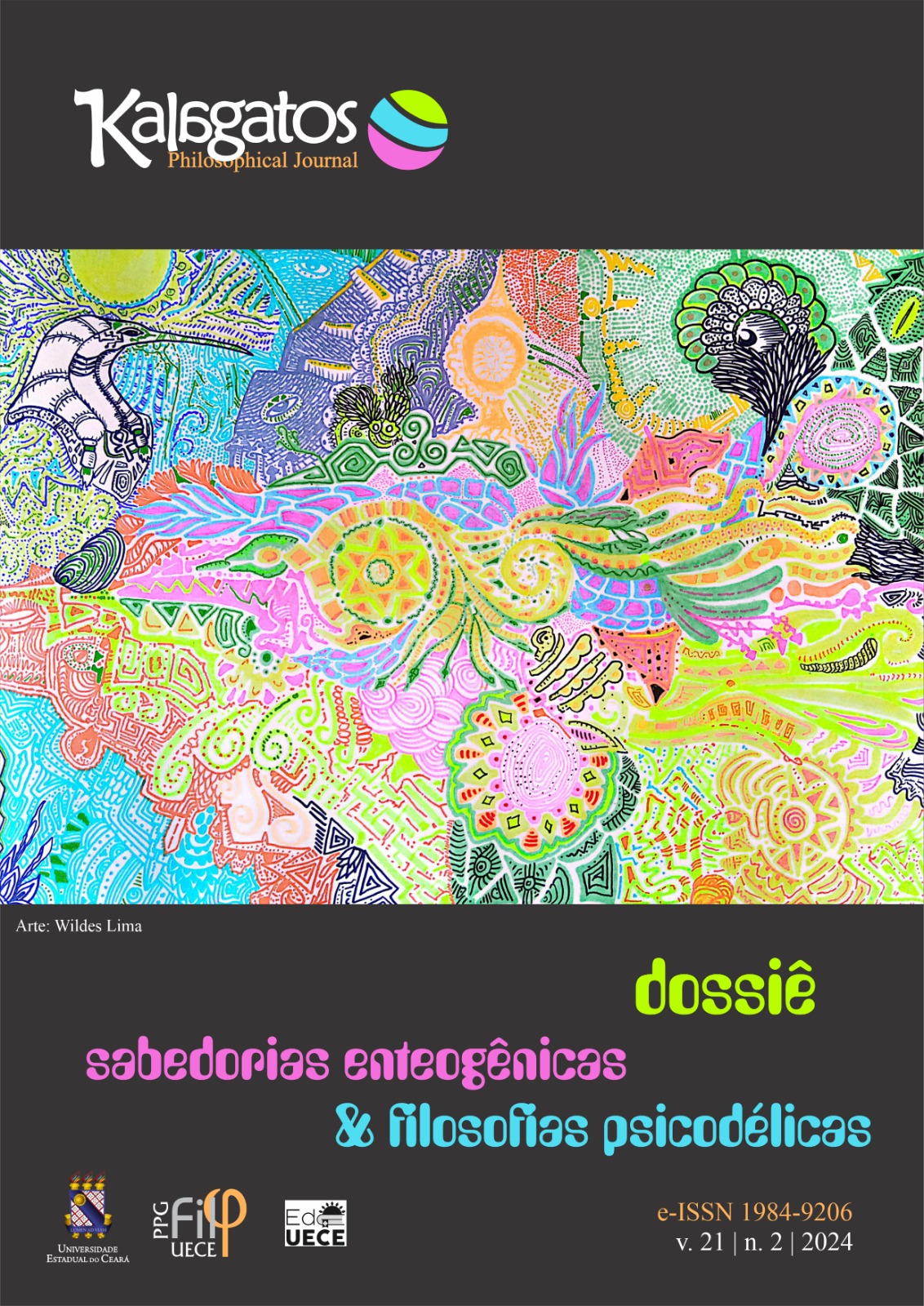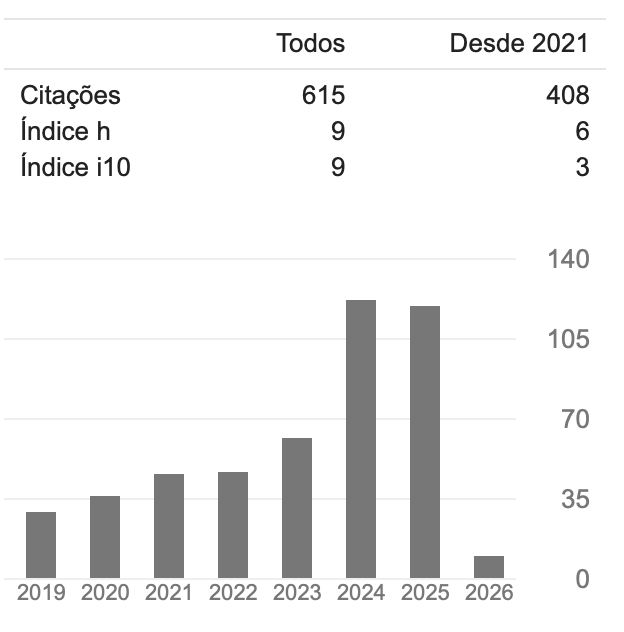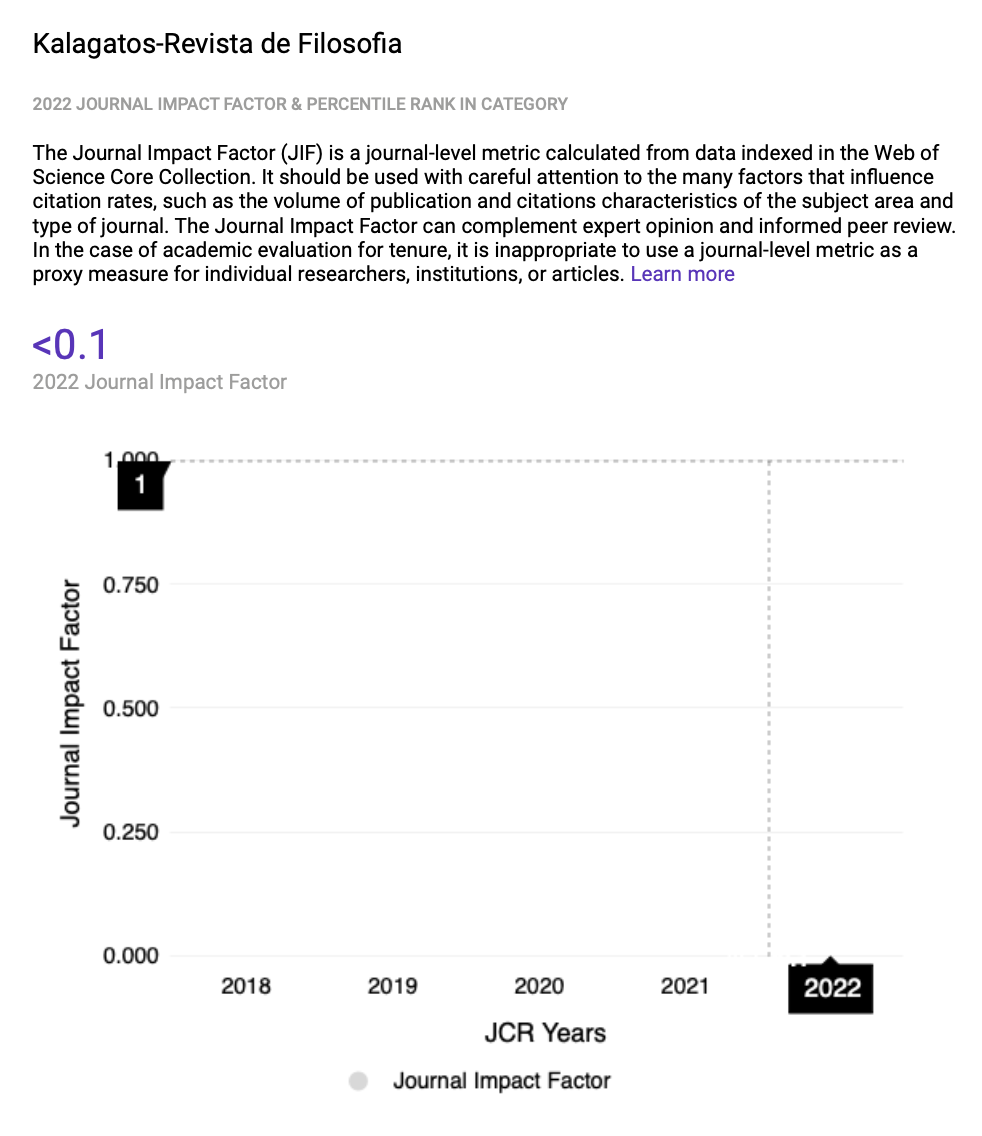Psychedelia as a molecular revolution: the agency of modes of thought and expression based on psychedelic experiences
Keywords:
empirismo transcendental, agenciamentos maquínicos, contracultura, bricolagemAbstract
An interesting way to think about the contribution of so-called "psychedelic experiences" to philosophical thought is to look at it from the point of view of a "molecular revolution." The term, coined in the influence of the works of G. Deleuze (1925 – 1995) and F. Guattari (1930 – 1992), proposes a shift in perspective on the movements of transformation of the social and subjectivity, where the distinction between molar and molecular emphasizes the movements of micropolitical assemblages of desire. Becomings that are molecularly articulated, subjectivities constituting "groups" that, even though they are not molar structures, delirious the entire social field, producing new perspectives. The relationship between the body and psychedelic molecules forms a kind of agency, in which the ordinariness of perceptions linked to the molar structures of reality is called into question. This creates an opening in subjectivity for a kind of experience with becomings, understood as expressions of other modes of existence. The psychedelic experience demands expressive or enunciative assemblages from subjectivity, since the conventional representative schemes of consciousness are confronted with non-ordinary perceptions. By looking at the psychedelic experience in this sense, we hope to show the fractality of its production of meanings and social, political, aesthetic and subjective transformations.
Downloads
References
BARROS GUIMARÃES, José Luís de. Memória, esquecimento e política em Walter Benjamin: A reinterpretação da história a partir do comprometimento ético com os vencidos. Kalagatos, v. 16, n. 2, p. 104–128, 2021. Disponível em: https://revistas.uece.br/index.php/kalagatos/article/view/6591.
COSTA, Solange. bell hooks e Elza Soares: A vez e a voz da resistência. Kalagatos, v. 19, n. 1, p. eK22018, 2022. Disponível em: https://revistas.uece.br/index.php/kalagatos/article/view/8307.
DELEUZE, Gilles; GUATTARI, Félix. O anti-Édipo: capitalismo e esquizofrenia. Trad. Luiz B. L. Orlandi. São Paulo: 34, 2010.
DELEUZE, Gilles. Empirismo e subjetividade: ensaio sobre a natureza humana segundo Hume. Trad. Luiz B. L. Orlandi. São Paulo: 34, 2001.
DELEUZE, Gilles. Diferença e repetição. 2. ed. Trad. Luiz Orlandi e Roberto Machado. Rio de Janeiro: Graal, 2006.
FREITAS, Jan Clefferson Costa de. Que é isto – a Filopsicodelia? O Reflorescimento da Filosofia Psicodélica. Princípios: revista de Filosofia, Natal (RN), v. 30, n. 62, p. 159-200, mai – ago, 2023a. Disponível em: https://periodicos.ufrn.br/principios/article/view/31841.
FREITAS, Jan Clefferson Costa de. Entheogenic Creativity: Shamanism and Entheogens in the Visionary Art of Alex Grey. Kalagatos, v. 20, n. 1, p. eK23011, 2023b. Disponível em: https://revistas.uece.br/index.php/kalagatos/article/view/10132 .
FOUCAULT, Michel. Arqueologia do saber. Trad. Luiz Felipe Baeta Neves. 7.ed. Rio de Janeiro: Forense Universitária, 2008.
GUATTARI, Félix. Revolução molecular: pulsações políticas do desejo. Trad. Suely Belinha Rolnik. São Paulo: Brasiliense, 1985.
HUXLEY, Aldous. As portas da percepção; céu e inferno. Trad. Marcelo Brandão; Thiago Blumenthal. São Paulo: Biblioteca Azul, 2015.
Downloads
Published
How to Cite
Issue
Section
License
Copyright (c) 2024 Igor Fidelis Maia, Edson Gonçalves da Silva Filho, André Vinícius Nascimento Araújo

This work is licensed under a Creative Commons Attribution 4.0 International License.



















